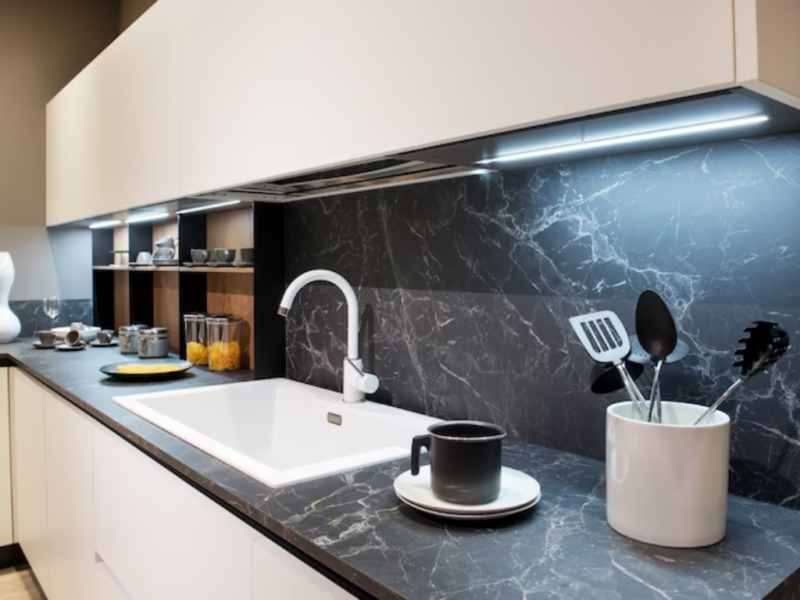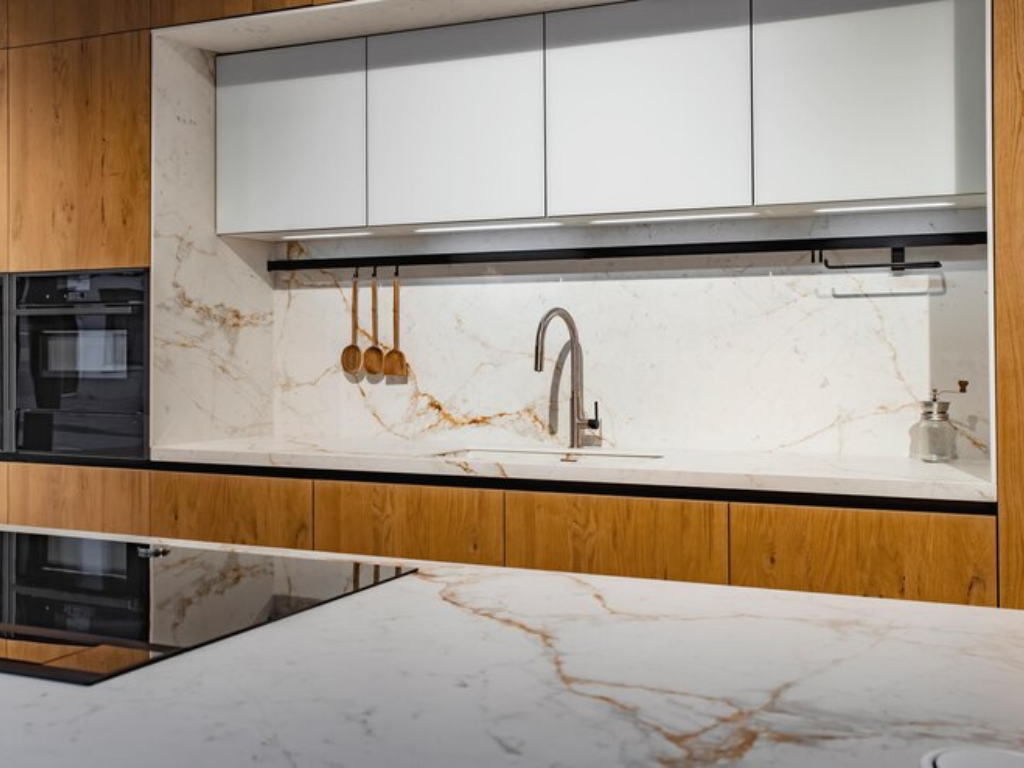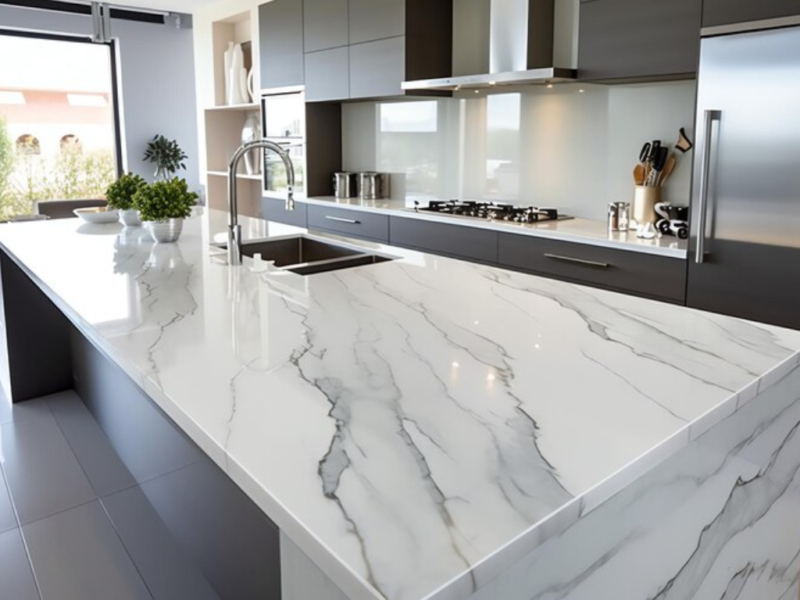The Pros and Cons of Porcelain Kitchen Countertops
Introduction:
The practicality and appearance of your kitchen can be substantially impacted by your choice of kitchen countertop material. Among the various options available, porcelain kitchen countertops have emerged as a popular choice for homeowners and designers alike. To assist you in making an informed selection for your kitchen renovation or construction project, we will examine the benefits and drawbacks of porcelain kitchen countertops in this blog.

Pros of Porcelain Kitchen Countertops:
- Durability: Porcelain is a highly durable material that can withstand daily wear and tear in a busy kitchen. It is resistant to scratches, stains, and impacts, making it an excellent choice for families and individuals who need a countertop that can handle heavy usage.
- Heat Resistance: porcelain kitchen countertops are highly heat-resistant, meaning you can place hot pots and pans directly on the surface without worrying about damage. This quality adds to the countertop’s practicality and convenience.
- Non-Porous: Porcelain is a non-porous material, which means it does not absorb liquids or harbor bacteria. This makes it highly hygienic and easy to clean, making it a safe and suitable option for food preparation areas.
- Aesthetic Appeal: Porcelain kitchen countertops come in a wide range of colors, patterns, and textures, offering versatility in design. There is a porcelain countertop to fit your style, whether you want a traditional and refined appearance or a contemporary and minimalist design.
- Low Maintenance: Due to its non-porous nature, porcelain requires minimal maintenance. A simple wipe with a damp cloth and mild detergent is usually enough to keep it clean and looking new.
- Cost-Effective: Compared to some other high-end countertop materials, porcelain is relatively more cost-effective, offering an attractive balance between quality and price.
Cons of Porcelain Kitchen Countertops:
- Susceptible to Chipping: While porcelain is durable, it can be more susceptible to chipping or cracking compared to materials like quartz or granite. Avoid heavy impacts or dropping heavy objects on the countertop to prevent damage.
- Weight: Porcelain countertops can be heavier than some other materials, which may require additional structural support for installation.
- Limited Edge Profiles: porcelain kitchen countertops may have limitations in terms of edge profiles, which can impact the overall design aesthetics.
- Visible Seams: Large kitchen layouts may require multiple porcelain slabs, leading to visible seams. However, an experienced installer can minimize their appearance for a seamless look.
- Sound: Porcelain countertops may be noisier than softer materials like wood or laminate, especially when items are placed or moved on the surface.
Conclusion:
Porcelain kitchen countertops offer an array of advantages, including durability, heat resistance, low maintenance, and a vast range of design options. While they may have some limitations, such as susceptibility to chipping and visible seams, these cons can be managed with proper care and installation techniques. Overall, porcelain countertops provide an excellent blend of practicality and aesthetics, making them a compelling choice for homeowners seeking a stylish and functional kitchen surface. Before making a decision, it’s essential to consider your lifestyle, design preferences, and budget to determine if porcelain kitchen countertops align with your specific needs and vision for your kitchen space.



